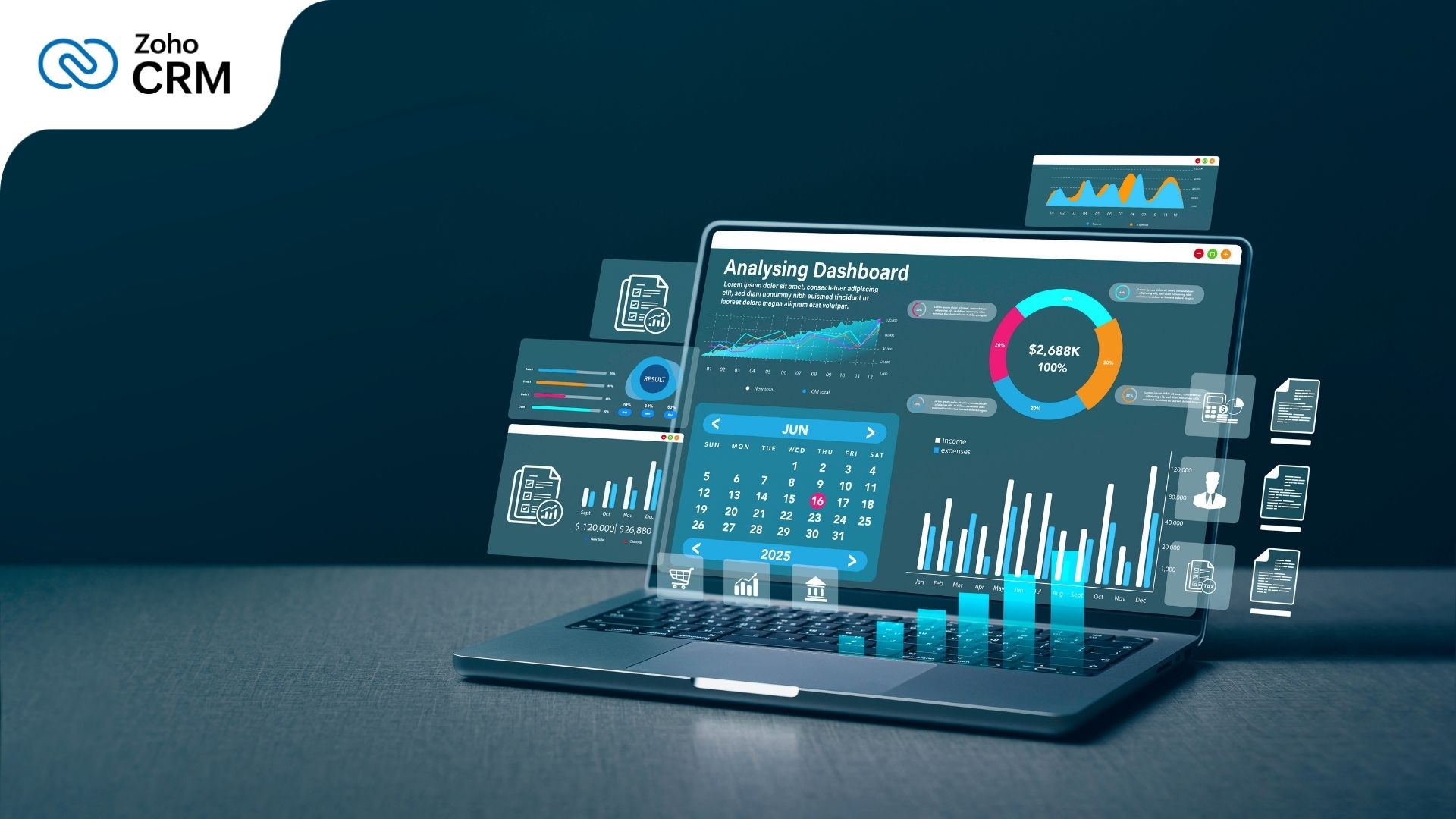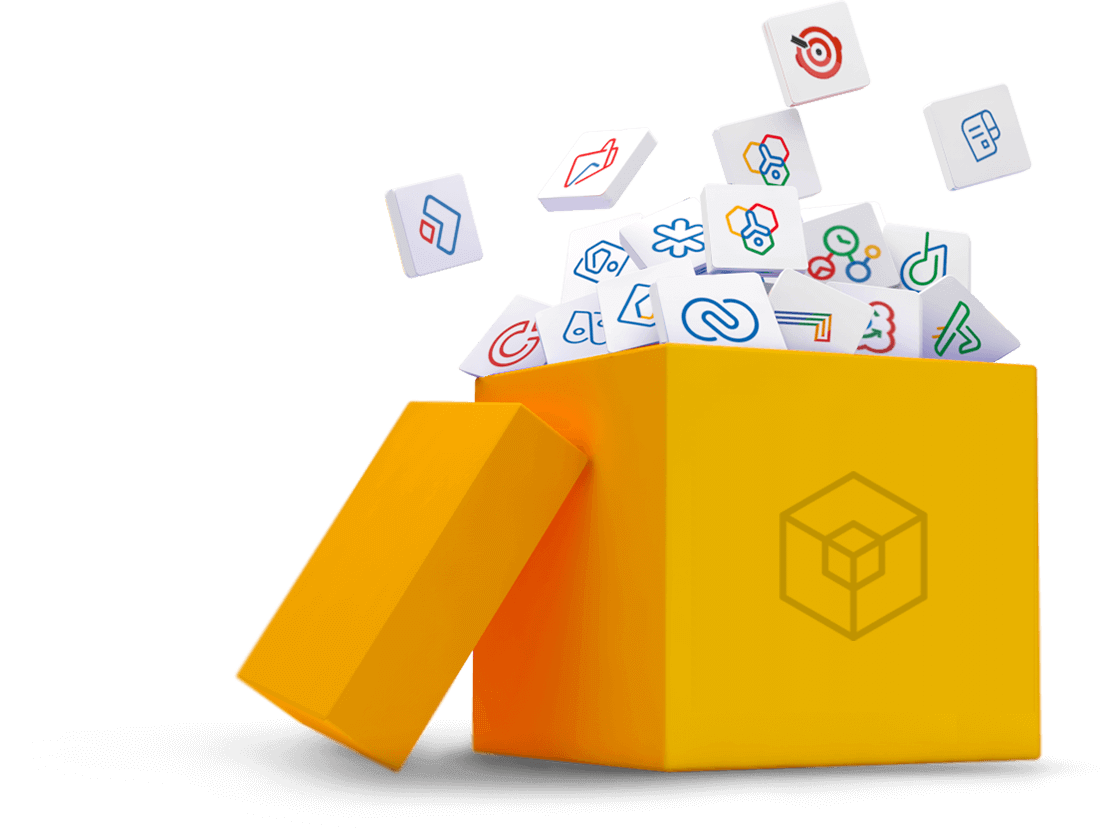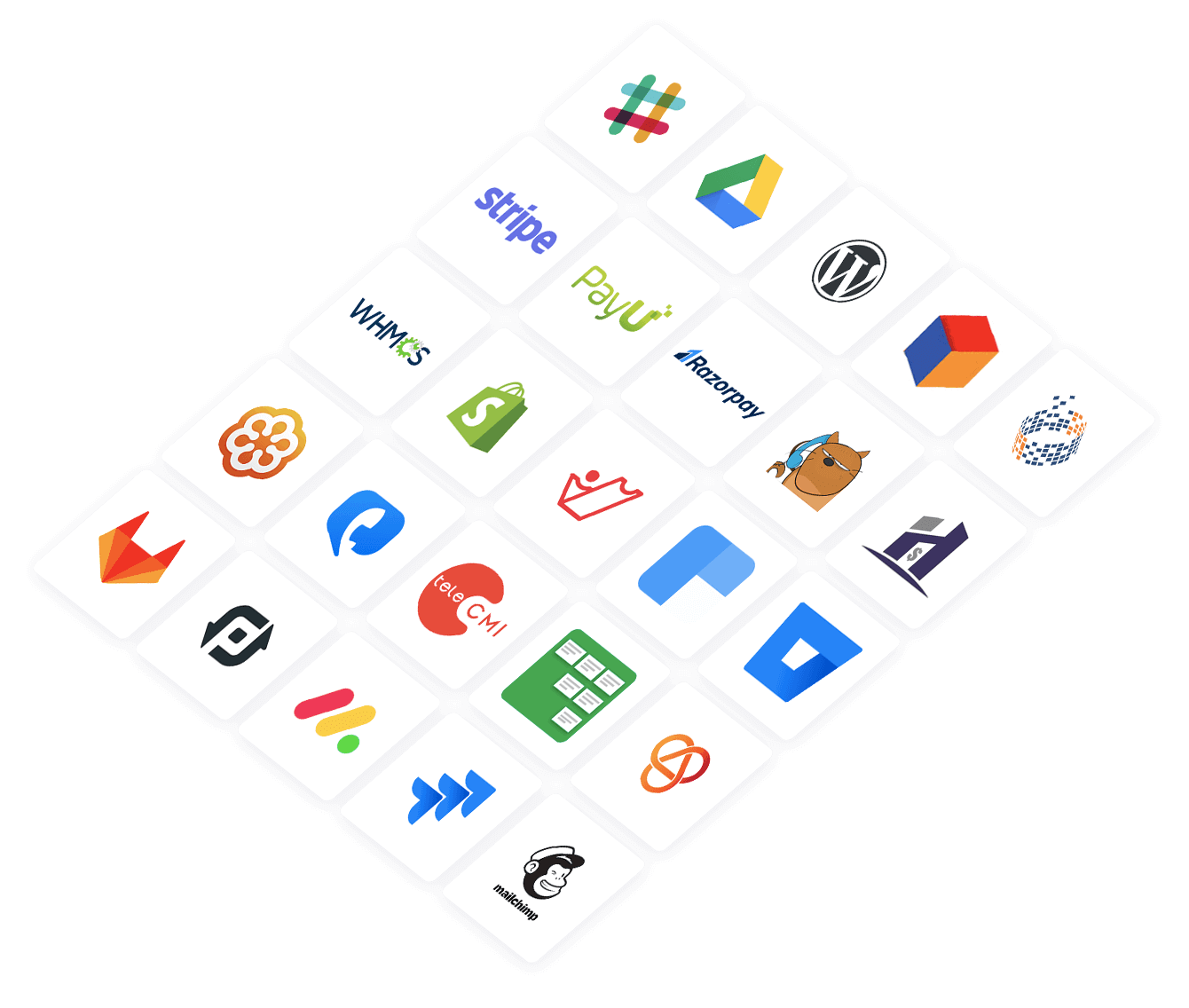How sales analytics just got smarter, faster, and sharper with AI
- Last Updated : July 2, 2025
- 172 Views
- 6 Min Read

As we step further into 2025, AI tools are no longer optional but necessary, as they help businesses simplify daily tasks, engage with customers more effectively, and find new ways to grow. These tools make your work easier, help you make smart choices, and enable you to stay connected with what customers really want. As modern businesses are grappling with increasing competition and ever-changing customer preferences, the ability to harness data effectively has become a non-negotiable asset. And this is where sales analytics become essential—by deriving structured insights from vast volumes of sales data to help you make smarter decisions and enhance your business's performance.
Traditional sales analytical tools—while valuable—often fall short in terms of speed and scalability. Artificial intelligence (AI) and machine learning (ML) are two technologies that are revolutionizing the way businesses approach sales intelligence. According to a report published by McKinsey & Company, 78% of organizations have integrated AI into at least one business function, with sales and marketing being among the top areas of implementation in 2025. By integrating AI into sales analytics, companies can unlock real-time insights, automate processes, and deliver personalized customer experiences across multiple platforms.
Tools like AI-driven CRM systems offer automated lead management, help track your customers' behaviors, and assist in data-driven decision making. These intelligent systems go beyond just data management and record keeping; they suggest the next best move, the next cross-sell, and your next win. Whether it's lead scoring, personalized recommendations, or optimizing conversion rates, AI-powered CRMs don't just support your sales strategy; they serve as the catalyst between your actions and your desired outcomes. AI is transforming sales from a game of intuition or estimation into a data-driven art. AI can also help streamline your day-to-day operations by suggesting optimal workflows, identifying relevant records, and recommending macros that boost efficiency and reduce manual effort.
At the core of this revolution is predictive analytics, where AI analyzes historical and behavioral sales data to deliver accurate sales forecasts. This helps your sales reps and managers operate with full visibility, anticipate demand, and close more deals with confidence.
How does integrating AI into your sales analytics help elevate your sales?
Forecasting demand and customer trends precisely
Integrating AI into your sales analytics transforms your sales forecasting by analyzing historical sales patterns, customer behavior, market conditions, and even external data such as economic indicators or social sentiments. This helps you generate accurate and dynamic forecasts that evolve with real-time conditions. By identifying micro-trends, seasonal fluctuations, and regional demand variations, AI helps companies allocate resources efficiently, reduce inventory costs, and enhance supply chain synchronization. Unlike traditional analytics, AI-driven tools offer real-time insights. This predictive capability ensures that businesses are well-prepared to meet customer needs and market fluctuations with agility and confidence.
Personalization at scale
By tracking your customers' behavior patterns and preferences across various platforms, AI can facilitate the delivery of personalized recommendations and tailored experiences crucial in today's hybrid environment. By analyzing customer behavior and preferences across touchpoints, AI can deliver customized product recommendations and targeted messaging that resonate with individual buyers. This deep personalization not only enhances your customer experience but also boosts engagement and conversion rates—turning a one-size-fits-all approach to outreach into one-to-one experiences that drive loyalty and sales impact.
Automating lead scoring and pipeline tracking
AI can help reduce your sales reps' manual workload by automating tasks like lead scoring, follow-ups, data entry, and pipeline tracking. Beyond automation, AI actively identifies inefficiencies in the sales funnel and offers suggestions to remove bottlenecks and optimize the overall sales process. This leads to faster deal closures, higher conversion rates, and a sharper, more focused sales strategy—all of which frees your reps to focus on what truly matters: building relationships and closing deals.
Making sales analytics more accessible
AI significantly enhances accessibility by delivering up-to-date analytics through user-friendly dashboards, voice assistants, and mobile apps. Your sales reps can now access AI-driven insights across all platforms, from CRM systems to cloud-based analytics tools—without having to sift through raw data.
AI simplifies access to sales analytics by delivering automated insights through intuitive dashboards and alerts. It reduces reliance on technical expertise, making data actionable for all team members. With role-based access and multi-device support, AI ensures secure, relevant, and instant access to key sales insights anytime, anywhere.
Smarter CRM systems
AI-integrated CRM systems help transform traditional data management platforms into proactive, insight-driven solutions that empower smarter decision-making. They analyze interactions, recommend next-best actions, and continuously improve customer engagement strategies. You can now automate repetitive tasks like follow-ups, data entry, and pipeline updates to free up your valuable time for deeper customer engagement. Generative AI takes this a step further by enabling teams to draft personalized emails, proposals, and reports in just minutes, thereby accelerating your outreach without compromising on quality. These systems can also analyze past customer interactions, communication patterns, and buying behaviors to recommend next-best actions, optimal contact times, and personalized engagement strategies. AI-enabled CRMs continuously learn and evolve, helping your sales reps build trust, reduce churn, and close deals more effectively by delivering timely and relevant customer interactions.
How to ensure sensitive sales data is protected in an AI-driven world
To safeguard sales intelligence when leveraging AI, organizations must prioritize data privacy, regulatory compliance, and controlled access. Adhering to global data protection laws like the General Data Protection Regulation (GDPR) and the Health Insurance Portability and Accountability Act of 1996 (HIPAA) is essential to ensure sensitive customer and sales data is handled lawfully.
Start by restricting user access to only those who genuinely need it to minimize data exposure and ensure accountability. Always read the fine print of any AI-powered sales platform to understand how it processes, stores, and secures your data. Look for tools that are transparent, privacy-forward, and compliant with major security frameworks.
Additionally, implement end-to-end encryption, regularly audit system access, and train your teams on data-handling protocols. When combined, these steps not only protect your sales intelligence but also build long-term credibility with clients and stakeholders. At Zoho, we place user privacy at the core of our AI development, ensuring alignment with global compliance standards to maintain transparency and trust.
Is AI-driven sales analytics the future of sales ?
AI-driven sales analytics is transforming the sales landscape by shifting from reactive reporting to proactive, real-time intelligence. Unlike traditional tools, AI leverages machine learning algorithms and predictive analytics to forecast trends, identify high-potential leads, and personalize customer engagement across platforms. This enables data-driven decision-making, faster response rates, and strategic agility.
With intelligent automation, your sales teams can focus on high-impact activities by streamlining repetitive tasks like pipeline updates and follow-ups.
Companies like JP Morgan Chase have successfully infused AI into its sales and client servicing systems to boost personalization and efficiency and to gain useful insights. By leveraging AI-powered sales analytics, companies can identify high-value clients, forecast market behavior, and tailor-make investment strategies in real time.
This shift has led to a 20% increase in asset and wealth management sales between 2023 and 2024.
Summing up the AI-driven shift in sales
AI has transcended its role as a mere technological asset and stands at the core of a transformative evolution in sales analytics. From generating predictive insights and enabling real-time data analytics to delivering hyper-personalized customer journeys, AI is redefining how businesses understand and engage with their markets.
By automating repetitive tasks, enhancing forecasting accuracy, and empowering data-driven decisions at scale, AI enables your sales teams to operate with greater agility, precision, and impact. What was once considered aspirational is now achievable with smarter strategies, sharper execution, and stronger outcomes.
Yet this shift also brings new responsibilities. As organizations embrace AI, they must prioritize data privacy, ethical implementation, and inclusive accessibility. These aren't just safeguards; they're strategic enablers of trust and sustainability in a rapidly evolving landscape.
The future of sales is not just digital; it's intelligent, adaptive, and human-centered—and AI is leading the way.
Ready to boost your sales? Discover Zia, your all-in-one AI assistant.




